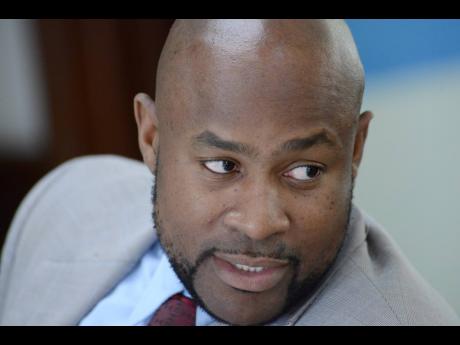Handful of appeals against rejected UWI professorships
Over the last two decades, only three academics at The University of the West Indies (UWI) appealed decisions not to promote them to professorship, an administrator has disclosed to back up claims of an “objective” selection process.
Growing concerns over the appointments system come as the institution’s executive head, Vice-Chancellor Sir Hilary Beckles, hosts a media conference today to address other troubles.
Those include a controversial though yet-to-be ratified governance report recommending increasing students’ tuition contribution to 40 per cent from the current 20 per cent, with the rest of the economic costs of running the university coming from CARICOM governments.
The document, which has warned of financial ruin, also slams the university for maintaining a “dysfunctional” corporate governance structure and for not holding managers accountable for non-accomplishment of goals and objectives because the 73-year-old regional institution does not have performance metrics in place.
UWI Registrar Dr Maurice Smith said the three appeals included labour expert and sociologist Dr Orville Taylor, a senior lecturer at the Mona campus in Jamaica, who has levelled serious allegations against the institution’s top-tier leadership.
All three cases emerged in 2018 – two from Mona and the other from the St Augustine campus in Trinidad and Tobago.
Excluding Taylor’s, one led to a promotion, while the other is “proceeding quite favourably”, said Smith, who took up the post as the administrative head of the university in August 2019.
Smith argued that the rare instances of appeal were evidence that the system of promotion to the highest academic ranking at the tertiary level was uncompromising.
“The university has a very robust and rigorous pathway to professorship,” Smith told The Gleaner during an interview last Thursday.
“We pride ourselves in ensuring that persons upon whom that title is bestowed would have demonstrated the rigour as is indicated in the ordinances and the procedures that are put in place to guide the process.”
CRITERIA FOR PROMOTION
The criteria for promotion to professor at The UWI include, among other things, having “a record of distinguished original work” and achieving “outstanding success in, and wide recognition of, professional activities”.
The University Appointments Committee (UAC) decides who gets promoted, but the determination of “record of distinguished work” is heavily based on the opinions of five external, non-UWI assessors, where three positive bits of feedback almost guarantee promotion.
In Taylor’s case, that aspect has been muddy, resulting in a successful appeal of his rejection in 2019 after the final internal arbiter on staff or student disputes, the Visitor, ruled that three assessors gave positive feedback and, further, the initial UAC ought to have provided reasons for rejecting the application.
The Beckles-chaired UAC reconsidered the application on February 3 and, by majority decision, maintained its original decision, arguing that Taylor’s work was “undeveloped and not professorial”.
Taylor, a columnist with The Gleaner and talk-show host on allied media house Radio Jamaica, has since alleged “victimisation”, while questioning Beckles’ presence on the committee, especially after he formally accused him, the registrar and Pro Vice-Chancellor Professor Densil Williams of “misconduct” for failing to provide reasons for the initial rejection.
The UWI’s rules mandate that reasons be provided, a breach the UAC committed based on the Visitor’s ruling.
The university has pushed back at some of those claims, as the UAC, in a February 12 letter to Taylor, said his concerns were considered but concluded that “there was no conflict of interest”.
In the interview last week, Smith declined to discuss the treatment of the misconduct case, reiterating the initial comments of the university to The Gleaner: that the issue of promotion was a “private and confidential matter”.
Following the publication of a Sunday Gleaner story on the issue on February 14, The UWI issued a statement saying the UAC’s “procedures are rooted in democratic fairness and its deliberations are resolved entirely by consensus or majority positions”.
As university rules dictate that the vice-chancellor and campus principals decide how complaints of misconduct are treated, the process when the vice-chancellor is the subject of an accusation is not clear.
The West Indies Group of University Teachers (WIGUT), the union representing UWI academics, said it has been examining the issues.
“We are currently discussing the ruling of the Visitor and decision of the University Appointments Committee, and so would not be able to make a statement,” said Professor Paul Brown, WIGUT president.
The professorship spat has emerged as scrutiny over how the process, including ensuring gender equality, intensifies.
The Sunday Gleaner yesterday revealed that women comprise fewer than a third of the total number of professors among four of Jamaica’s top universities and colleges, a situation labelled “unacceptable” by the leaders of the institutions.
At The UWI, only 45 of the 164 professors are women, although most of the teaching staff are women and female students have long outnumbered their male counterparts by almost four to one.
“I know there are colleagues (women), who, for whatever reasons, are very competent and should be professors and are not,” said Professor Opal Palmer Adisa, UWI director of the Institute for Gender and Development Studies.
Editor’s Note: Dr Orville Taylor’s wife is an editor at The Gleaner but has had no involvement in the production of this or the prior story published on February 14.

